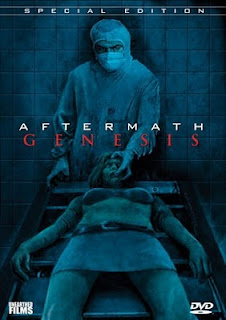
The ICTR convicted 60 individuals and acquitted 14. The suggestion of any crimes on the part of the RPF has been vigorously denied by the government of Rwanda, many of whose officials belonged to the RPF, including current President Paul Kagame.

In June 2006, human rights groups urged the tribunal to also address war crimes and crimes against humanity alleged to have been committed by the Tutsi Rwandan Patriotic Army during reprisals following the genocide. Learn more about incitement to genocide in international law. Since the Nuremberg trials of the Holocaust, no perpetrator had been convicted for that crime.

The Rwanda tribunals also included a landmark case that prosecuted three journalists for using the media to spread hate speech and directly incite violence during the genocide. On September 2, 1998, the ICTR delivered its first conviction for genocide when it ruled that Jean-Paul Akayesu was guilty of inciting and leading acts of violence against Tutsi civilians in the town where he served as mayor. Seven months after the genocide began, the United Nations established the International Criminal Tribunal for Rwanda (ICTR) in neighboring Arusha, Tanzania, to bring to justice those accused of high level crimes. Some of those accused are members of the Rwandan government, who have condemned the accusations. In October 2010, the United Nations released a report documenting human rights violations in the DRC in 19, asserting that invading Rwandan troops and their rebel allies killed tens of thousands of Hutus, including many civilians. It is estimated that more than five million people have died in the ongoing conflict in the DRC in the aftermath of the Rwandan genocide. Beginning in 1996, the DRC turned into the battleground for continuing armed conflict between Rwanda’s new government and the perpetrators of the 1994 crimes who fled there. When roughly one million refugees-including perpetrators of the genocide-fled Rwanda, the epicenter of violence shifted from Rwanda to the DRC (formerly known as Zaire). While credited with stabilizing the country, the government continues to face accusations of committing human rights abuses inside Rwanda against political opponents, and in the neighboring Democratic Republic of the Congo (DRC). The UN declared 7 April “the International Day of Reflection on the 1994 Genocide in Rwanda” to remember the mostly Tutsi and moderate Hutu Rwandans killed by their Hutu countrymen during a 100-day rampage.The post-genocide Rwandan government pursued a policy of “unity and reconciliation,” adopting a new constitution, creating programs to empower women, and increasing economic growth and stability. “We are all still accountable for supporting reconciliation and healing, and for ensuring that atrocities never happen again,” she said, stressing the need to hold perpetrators accountable and restore the dignity of victims by alleviating their suffering. The 10th anniversary must be marked with renewed concern for those continuing to suffer from the genocide, Ms.

By 2010, an estimated 350,000 children are expected to be orphaned by AIDS, UNICEF said. Of the 2,000 women tested up to 1999 – many of them rape survivors – 80 per cent were HIV-positive, even though many had not been sexually active before the genocide. Meanwhile, some 400,000 children are not in school and 20 per cent die before the age of 5. For these children "the genocide is not just a historical event, but an inescapable part of daily life today and tomorrow," the United Nations Children's Fund ( UNICEF) Executive Director Carol Bellamy said.Īn estimated 101,000 children live in some 42,000 child-headed households, either because their parents were killed in the genocide, died from AIDS or have been imprisoned for genocide-related crimes, UNICEF said.


 0 kommentar(er)
0 kommentar(er)
